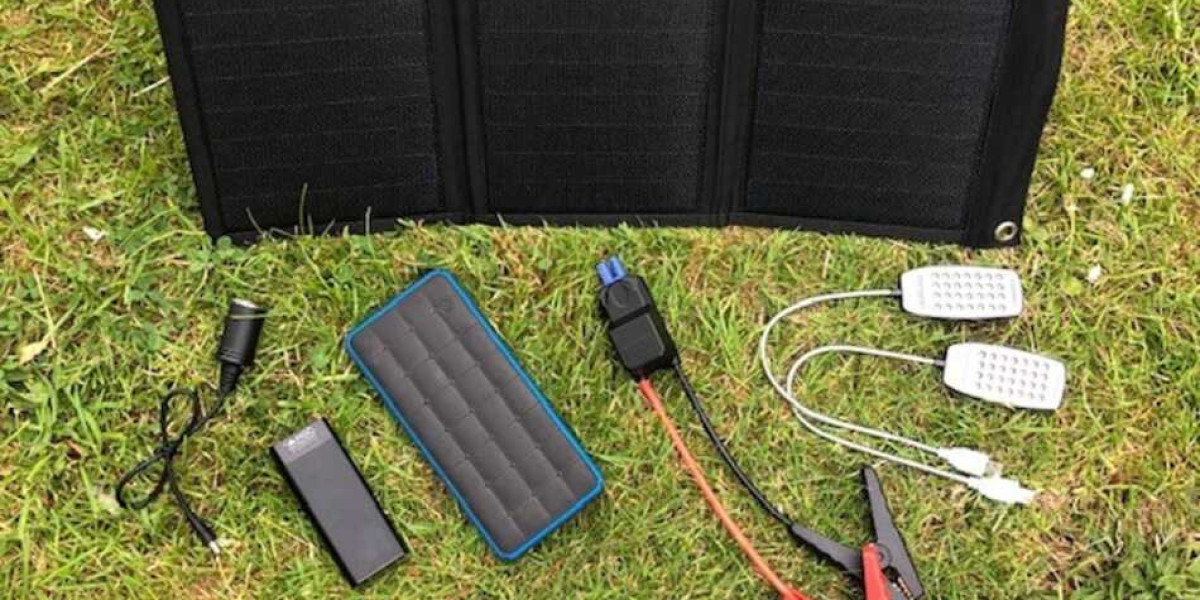Traveling often means long days outdoors, limited access to outlets, and a growing reliance on gadgets. Whether it’s your smartphone, camera, GPS, or e-reader, keeping devices powered is crucial. That’s where portable solar charging comes in. For beginners, the idea of relying on the sun to keep electronics running may feel uncertain or overly technical. This guide answers the most common questions and provides clarity so you can confidently embrace Solar Chargers Travel on your next adventure.
What Is A Solar Charger?
A solar charger is a compact device that uses solar panels to convert sunlight into electricity. Unlike traditional power banks that store electricity from a wall outlet, solar chargers generate renewable energy directly from the sun. Many models include built-in batteries to store power, while others are designed to charge devices immediately under sunlight. Their portability makes them especially useful during outdoor trips, camping, or extended vacations away from reliable power sources.
Do Solar Chargers Work Anywhere?
Yes, solar chargers work in most locations, but their efficiency depends on sunlight exposure. Clear skies and direct sun provide optimal results, while cloudy weather reduces output. If you’re traveling to regions with limited sunlight during certain seasons, you may want a charger with a higher watt rating or one that pairs with a power bank. In tropical or sunny destinations, a compact lightweight model may be sufficient for daily charging needs.
How Long Does It Take To Charge A Device?
Charging time varies based on three factors: sunlight intensity, panel size, and device battery capacity. For example, a small smartphone might recharge in two to three hours under strong sunlight using a mid-range charger. Larger gadgets like tablets can take significantly longer. To avoid frustration, many travelers carry an external battery pack. They use the solar charger to refill the battery during the day and then recharge their devices at night from that stored power.
Are Solar Chargers Reliable For Vacations?
For most travelers, solar chargers are reliable when used strategically. They may not always match the speed of wall chargers, but they excel at providing freedom in remote areas. If you’re backpacking through mountains, exploring beaches, or spending days in national parks, the independence from plug-in outlets is a huge advantage. It’s also a sustainable solution, reducing reliance on disposable batteries or fuel-powered generators.
How Do I Choose The Right Solar Charger?
When selecting a solar charger, beginners should consider:
Wattage: Higher wattage panels generate more power, which means faster charging.
Portability: Foldable designs and lightweight materials are ideal for travel.
Compatibility: Check whether the charger supports USB, USB-C, or DC output for your devices.
Durability: Water-resistant and rugged models are perfect for outdoor adventures.
Battery Integration: Some come with built-in power banks for storing energy when the sun isn’t shining.
Can Solar Chargers Power All My Devices?
Solar chargers work best with small to medium electronics like smartphones, GPS units, Bluetooth speakers, and cameras. Laptops and high-capacity drones usually require larger solar panels or specialized chargers. Beginners are advised to start with everyday devices to avoid overloading the panel or facing slow performance.
Are They Safe To Use?
Yes, solar chargers are safe when used correctly. Most modern chargers include built-in protections against overcharging, short circuits, or overheating. It’s wise, however, to keep devices shaded while charging to prevent them from overheating under direct sunlight. Using certified cables and checking manufacturer guidelines ensures smooth and safe operation.
Do Solar Chargers Save Money?
While solar chargers may require an upfront investment, they can save money in the long run. Travelers who frequently go off-grid or rely on multiple gadgets will notice fewer expenses on disposable batteries or backup power solutions. The eco-friendly factor is another benefit: every watt you capture from the sun reduces dependency on grid power and helps minimize carbon footprints during travel.
What If There’s No Sun?
Solar chargers rely on light, but not always direct sunlight. Overcast days still generate some electricity, though at a reduced rate. For complete reliability, pair your solar charger with a power bank. This allows you to capture whatever energy is available during the day and use it later at night or during cloudy weather. Some hybrid chargers also allow partial charging from a wall outlet before the trip, giving you extra flexibility.
How Do I Maximize Efficiency?
Place panels directly under the sun without shade.
Adjust the angle every couple of hours to follow sunlight.
Keep panels clean and free from dust or debris.
Use shorter charging cables to reduce energy loss.
Store energy in a power bank whenever possible.
Do Beginners Need Special Skills To Use Solar Chargers?
Not at all. Most solar chargers are plug-and-play. You simply unfold the panels, connect your device via USB, and let the sun do the work. For extra convenience, many chargers include LED indicators to show when they’re generating power. With a little practice, anyone can quickly understand how to set up and optimize their charger.
Why Consider Solar Chargers For Travel?
The main appeal of solar chargers is the combination of independence, sustainability, and convenience. They let you stay connected without hunting for outlets in airports, cafes, or remote towns. Whether you’re a casual vacationer or an outdoor enthusiast, investing in solar charging technology gives peace of mind. You’ll know your essential devices won’t die just when you need them most.
Final Thoughts
Beginners often worry that solar charging will be slow, complicated, or unreliable. But with today’s compact, efficient, and affordable models, those concerns are fading. By learning the basics, choosing the right equipment, and using it strategically, travelers can enjoy stress-free vacations powered by the sun. If you’re preparing for your next journey, consider making Solar Chargers Travel part of your packing list—it’s a smart, eco-friendly step toward energy freedom on the go.












